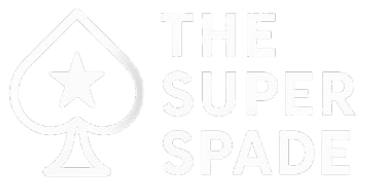Table of Contents
The stereotype of the “Indian American nerd” has been prevalent in popular culture and society for years. From movies to TV shows and even casual conversations, the image of Indian Americans as “nerdy,” “bookish,” and “academically-focused” has often been reinforced. But where does this stereotype come from? Why do so many people believe that Indian Americans are inherently nerdy?
In this blog, we will explore the roots of the stereotype, its impact on Indian Americans, and how it doesn’t tell the full story of their diverse experiences in the United States.
The Origins of the “Indian American Nerd” Stereotype
The “Indian American nerd” stereotype is a product of several factors, including historical immigration patterns, cultural values, and media representation. To understand why Indian Americans are often labeled as nerds, we need to look at the following factors:
Immigration Trends and Academic Success
In the 1960s and 1970s, a significant wave of Indian immigrants began to arrive in the United States, particularly after the Immigration and Nationality Act of 1965, which lifted restrictions on immigration from countries like India. This new wave of immigrants often came to the U.S. with strong educational backgrounds and a focus on academic achievement.
Many of these immigrants were highly educated professionals—scientists, engineers, doctors, and professors—who valued education and intellectual success.
As a result, their children, raised in a culture that emphasized academic excellence, were more likely to pursue careers in STEM (Science, Technology, Engineering, and Mathematics) fields. Indian Americans became associated with fields like engineering, computer science, and medicine, areas traditionally seen as “nerdy” or intellectual.
Cultural Emphasis on Education
In Indian culture, education has always been highly valued. For centuries, academic success was seen as a path to upward mobility and social respect. Parents in Indian households often place a strong emphasis on education, encouraging their children to excel in academics.
This cultural value was passed down to Indian American families, many of whom saw education as the key to success in America.
This focus on academics led to high educational achievements in Indian American communities, especially in fields such as engineering, medicine, and technology.
While this is a positive reflection of Indian Americans’ commitment to education, it became part of the broader stereotype of being “nerdy”—as people in these fields are often associated with intellectualism and less emphasis on social or extracurricular pursuits.
Media Representation
The portrayal of Indian Americans in movies, TV shows, and pop culture has contributed significantly to the “nerd” stereotype. Characters like Raj Koothrappali from The Big Bang Theory and Apu Nahasapeemapetilon from The Simpsons have reinforced the idea of Indian Americans as socially awkward, academically driven, and overly intellectual.
These portrayals often exaggerate certain traits, presenting Indian American characters as being overly shy, bookish, and lacking social skills.
While these characters may be humorous in a fictional setting, they perpetuate a narrow, stereotypical view of Indian Americans and fail to represent the full diversity of the community.
The Rise of Silicon Valley
Another major factor in the perpetuation of the “nerd” stereotype is the success of Indian Americans in Silicon Valley. Over the last few decades, Indian Americans have become highly visible in the tech industry, with many holding influential positions in major tech companies such as Google, Microsoft, Intel, and Apple.
The image of tech professionals working long hours in front of a computer, developing innovative software and hardware, has reinforced the image of Indian Americans as tech-savvy “nerds.”
The rise of Indian Americans as leaders in the tech industry has contributed to the stereotype, but it is important to note that this achievement reflects hard work, intelligence, and perseverance—qualities that should be celebrated rather than reduced to a simplistic stereotype.
Read also: Why Are Couples in School Extremely Clingy?
The Impact of the Stereotype on Indian Americans
While stereotypes may seem harmless or humorous to some, the “Indian American nerd” stereotype has real-world consequences. It can lead to misrepresentation, misunderstanding, and even social isolation for many individuals. Here are some of the impacts of this stereotype:
Social and Cultural Pressure
The expectation that Indian Americans should excel in academics and pursue careers in fields like engineering or medicine can create immense pressure on younger generations. Those who don’t fit into this mold may feel alienated or like they aren’t living up to the expectations of their families or communities.
Additionally, the stereotype can create a sense of otherness for Indian Americans who may not identify with the “nerdy” image. They might feel that they are being boxed into a narrow and limiting perception of what it means to be Indian American.
Limited Representation in Media
As the “nerdy” stereotype of Indian Americans is so prevalent in the media, it can lead to a lack of nuanced representation. Indian Americans are often depicted as one-dimensional characters focused solely on academics or technology, neglecting the rich cultural diversity and personal experiences that make up their identities.
This limited representation can be frustrating for many, especially younger generations who want to see more diverse depictions of their culture. Indian Americans, like all people, are multi-dimensional, with interests in a variety of fields such as art, music, fashion, sports, and more.
The “Model Minority” Myth
The “nerd” stereotype is often intertwined with the model minority myth, which suggests that all Asian Americans, including Indian Americans, are hardworking, academically inclined, and successful. While this stereotype may seem flattering, it can have negative consequences.
It can place undue pressure on individuals to live up to unrealistic expectations and ignore the challenges that Indian Americans face, such as discrimination, racism, and economic inequality.
The model minority myth can also cause intergroup tension by setting up comparisons with other racial or ethnic groups, suggesting that some are more successful because they are “better” or more hardworking. This simplification of complex social dynamics does not take into account the wide-ranging experiences of people within the community.
Breaking the “Indian American Nerd” Stereotype
While the “Indian American nerd” stereotype may still exist, it is important to challenge and move beyond it. Here are a few ways to break the stereotype:
Diverse Representation in Media
Media outlets, filmmakers, and TV shows should strive for diverse and accurate portrayals of Indian Americans, moving away from simplistic, one-dimensional characters. By showing Indian Americans as multi-faceted individuals with a wide range of interests and experiences, we can dismantle the harmful stereotype.
Emphasizing Personal Choice
Not all Indian Americans follow the same career path or academic trajectory. Some may be interested in the arts, fashion, sports, or other fields that don’t fit the “nerdy” stereotype. Celebrating individual choice and diversity of interests within the community helps break down the myth that all Indian Americans are academically-focused “nerds.”
Challenging the Model Minority Myth
We must recognize that not all Indian Americans fit into the “model minority” mold. Each person has their own unique story, and the challenges they face should not be overshadowed by the stereotype of effortless success. By acknowledging the complexities of the community, we can move past harmful generalizations.
Final Words
The stereotype of the “Indian American nerd” has deep roots in history, immigration patterns, and media representation. While many Indian Americans have excelled in fields like engineering, medicine, and technology, this is not the whole story. Indian Americans are diverse, multi-talented individuals with interests that span a wide range of fields.
As society evolves, it’s important to challenge outdated stereotypes and recognize the richness and complexity of the Indian American experience. The next time you encounter the “nerd” stereotype, remember that it’s just one facet of a much larger, more nuanced story.

